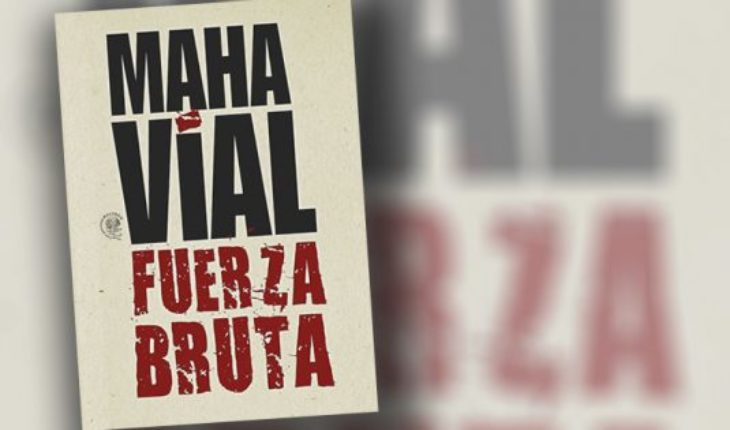This latest book by Maha Vial makes us enter a rugged, wild, nourished terrain not only of the word p oethics, but also of aspects typical of theatre, performance, visual arts, cinema or dance, all nuanced with the disorder of the senses promulgated by the incombustible Jean Arthur Rimbaud, which still resonates in every corner of the planet. In opening this book we face the anatomy prey to disintegration, corruption, violence or disease, issues that remind us of some actions of art or performance of Carlos Leppe in “Waiting Room” or the short film “Six men getting sick”, of David Lynch: “I was vomiting all night/ the substance was green/ with blood dyes and/one that another bug kicking/in his agony” (p. 19). Likewise, we can find his poetic genealogy in the work of such dissimilar artists as Antonin Artaud, Gabriela Mistral, Francisco de Goya, Alfred Hitchcock in verses such as: “The city is full of dark birds / there is no way to scare them/ their pecks fall on our bodies / like a real hail” (p. 22), and even Friedrich Nietzsche: “burn burning/ the rhythms/ all the rhythms/ the rhythms that cannot be danced” (p. 31), to name but a few.
Thus we find very interesting aspects in this book that seems to move in various dimensions or aspects, such as poetic art: “the plan is as follows:/ tackle the poem/ to combos and kicks / without crying although at times / I shred and pick up / with the heart / drenched in tears” (p. 8), “you have to let the verse fall/pop your raw body/ over a cold cobblestone/ and that the words wounded/bleeding/slammed/ pile up/ about themselves without ton or are/ you have to let the verse/ turn dark brown violet” (p. 44); metallurgical: “Is it possible a poem/ like a burning ember/ that does not turn off / (…) and flips over itself/ and on life/ as a tick / to fresh meat?/ It is possible/ it is the only possible way / is it the only possible way / is the only possible way” (p. 11) or “the word I’m taking it out of a well/ (…) at the end of the afternoon/ one looks in the mirror/ and sees what the word skinned/ but alive” (p. 15). In these verses we can appreciate his being in the world as self-flagellation, sex and torture in which the human body is a metaphor for the social body, a question that is intensified in poems where self-portrait is its form and background: “Oh! How I fustified the meat/ to give and receive/I have it come and go/ under the commands of my voice/ obedience/ saturation/ sometimes abused/ lit cigarettes” (p. 16): Sadomasoquism, the breaking of pleasure. Hard sex: “I tell you dirt/ in the end/ amount in anger/ and I go” (p. 43)
Photograph of “Six men getting sick,” short film by David Lynch
We can also see that the author treats the word as if it were another flow between slime, blood, snot and piss: “the word changed/became greenish/ like standing water” (p. 12), in clear allusion to exhaustion of words and language: “blood is drained between the subjunctive/future” (p. 7) and it is here, in the first poem, that he ends up saying that there is “a light with too many shadows” (p. 7), critical of illustration and reason.
Your search: “I’m giving the well/ that unfathomable and dark/unfathomable and wet hole/ (…) the idea is to get to the other side/ the sea” (p. 21), an inner quest where what he finds are viscera, excrement, fluids: death: “I have lost a finger of the hand / digging the pit the final house / i travel a stretch of life a/footprint between the doubt and the worm” (p. 7).
Finally, perhaps the foundation of all this can be found in one of the central poems of this book where dirt is claimed as an aesthetic that unites everything: “I dig the bellies/ looking for the bone / I don’t let myself be seduced / by minor ills / but I sweat too much / and that tarnishes the vision / of critics and specialists / who dream of the word clean / waxed and scented” (p. 20), perhaps a very unique flag of feminist poetry, which nevertheless reveals a flash of rare and undismetable beauty, like the velvety colors of rot.
In conclusion, we can see a poetic that arises and consolidates in aspects related to dirt as a valid aesthetic, gross, wild feminism, the metalingenistics that questions the poetic work and the tearing of a voice in continuous transit between different genres that on this occasion are gathered in the poem, but that can perfectly have their cinematic, theatrical, performative or visual version that remain dormant in these poems. A shudder, a stage voice that gives us, in a kind of vomit, a lesson that the limits of art are like those of desire and death: infinite or nonexistent.
Brute Force, Maha Vial, Kultrún Editions, Valdivia, April 2019, 44 pages.
The content poured into this opinion column is the sole responsibility of its author, and does not necessarily reflect the editorial line or position of El Mostrador.





